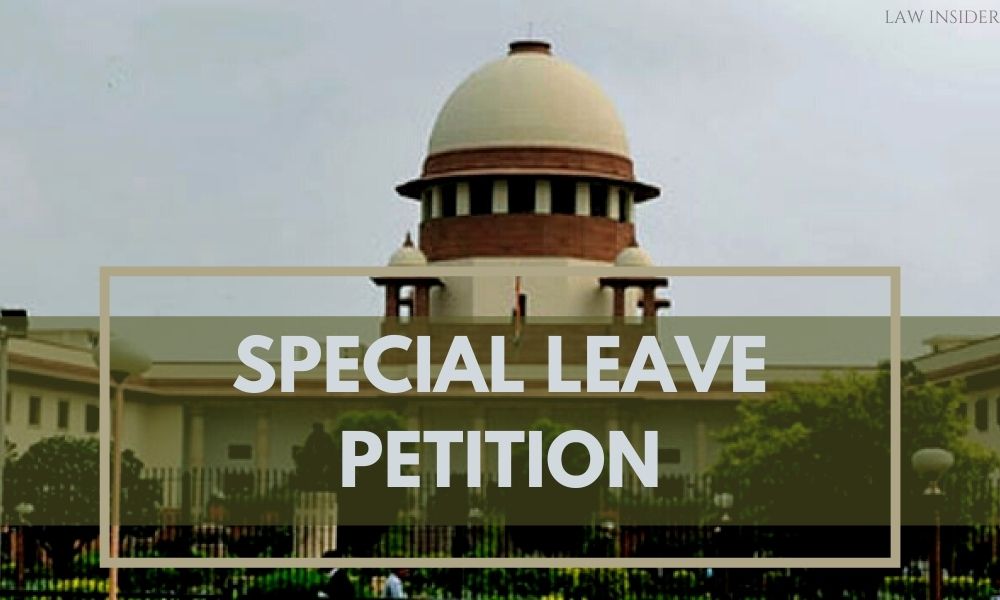
Special Leave Petition (SLP)
Posted on May 26, 2024
A Special Leave Petition (SLP) is a provision in Indian law that allows an individual or entity to seek the intervention of the Supreme Court of India when they believe that a gross injustice has occurred or that there is a significant question of law that needs to be addressed. This petition is governed by Article 136 of the Indian Constitution.
Key Features of Special Leave Petition (SLP)
- Discretionary Power: The Supreme Court has discretionary power to grant or reject an SLP. This means that not all SLPs are admitted for hearing; the Court first decides whether the petition raises substantial questions of law or matters of significant public importance that warrant its attention.
- Scope and Applicability: An SLP can be filed against any judgment, decree, or order of any court or tribunal in India, except for judgments of military courts. This wide scope makes it a crucial tool for judicial redressal.
- Time Frame: Generally, an SLP must be filed within 90 days from the date of the judgment or order appealed against. In certain cases, if there is a delay, the petitioner must provide a valid reason for the delay, and the Court may condone it if satisfied.
- No Requirement of Leave from Lower Courts: Unlike regular appeals, where leave (permission) from the lower courts is often required, an SLP can be directly filed in the Supreme Court without such permission.
- Grounds for Filing SLP: The grounds for filing an SLP include:
- Violation of natural justice.
- Miscarriage of justice.
- Important questions of law that require the Supreme Court’s interpretation.
- Any other substantial question or issue that merits the Court’s intervention.
- Process of Filing:
- Preparation: The petitioner must prepare a petition that includes the grounds of appeal, legal questions involved, and the facts of the case.
- Submission: The petition is submitted to the Supreme Court along with the required court fees and affidavits.
- Preliminary Hearing: The Supreme Court conducts a preliminary hearing to decide whether to admit the SLP.
- Notice: If admitted, a notice is issued to the respondents, and the case proceeds to a detailed hearing.
- Outcome:
- Dismissal: If the Court finds no merit in the petition, it dismisses the SLP.
- Granting Leave: If the Court finds substantial grounds, it grants leave, converting the SLP into an appeal and proceeding with a detailed hearing.
- Final Judgment: After hearing both parties, the Supreme Court delivers its final judgment, which may uphold, modify, or overturn the lower court’s decision.
Importance of SLP
- Access to Justice: SLP ensures that individuals and entities have access to the highest court in the country for redressal of grievances, particularly when lower courts have erred or significant legal principles are at stake.
- Uniformity in Law: By addressing substantial questions of law, the Supreme Court ensures uniformity and consistency in legal principles across the country.
- Checks and Balances: SLP acts as a mechanism to keep lower courts and tribunals in check, ensuring that their decisions adhere to legal standards and principles of justice.
Conclusion
The Special Leave Petition is a vital legal tool in the Indian judicial system, providing a mechanism for judicial oversight by the Supreme Court and ensuring that justice is served in cases where lower courts might have faltered or where significant legal questions need to be resolved.
Article Written by
Pathakota Venkata Mohana Rao B.Com, LL.M
Advocate at High Court of Andhra Pradesh and Telangana
Designated Partner at VENSO LAW OFFICES LLP
Office No: +91 967 967 6450
E-mail ID: vensolawofficesllp@gmail.com

